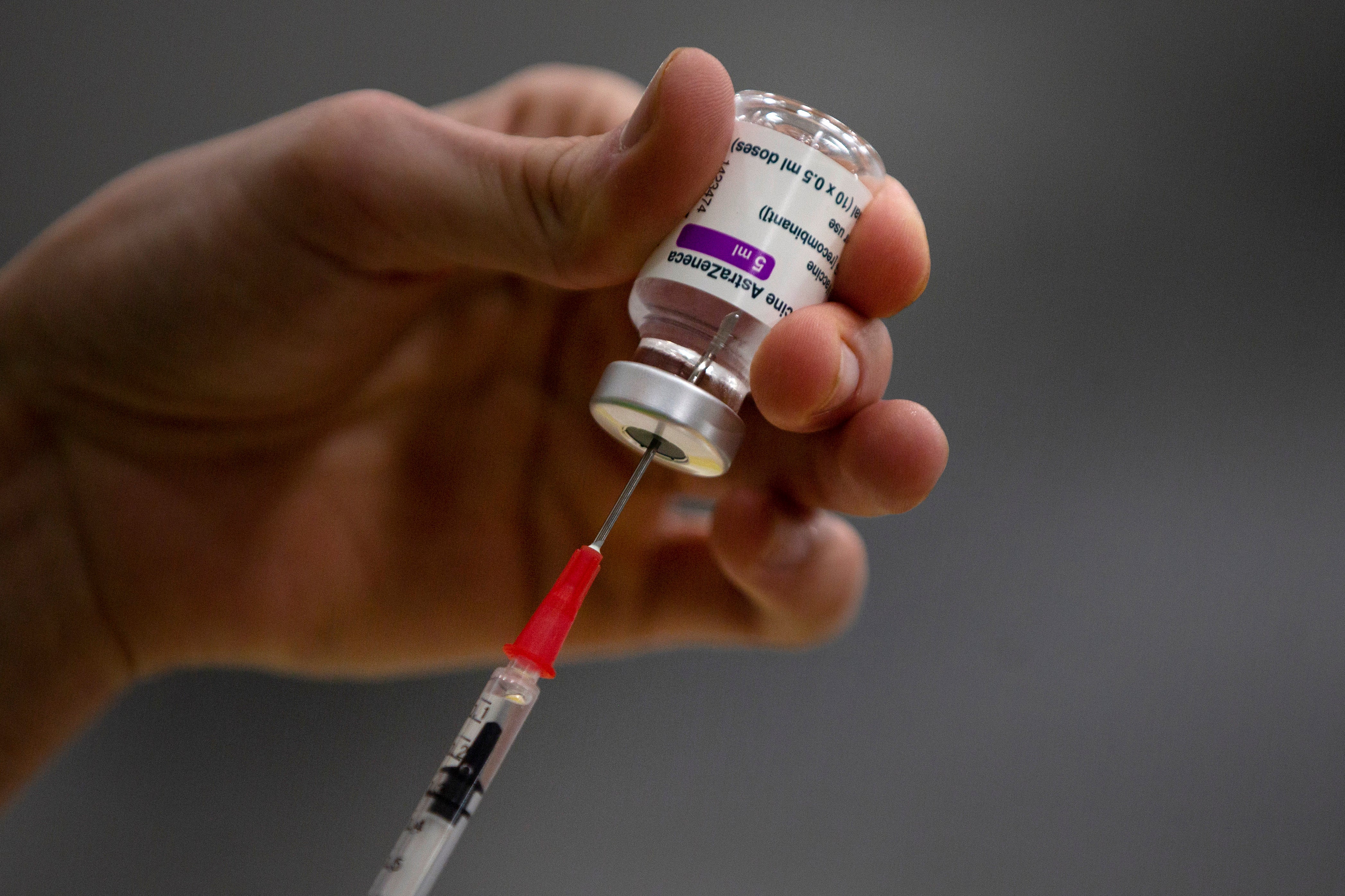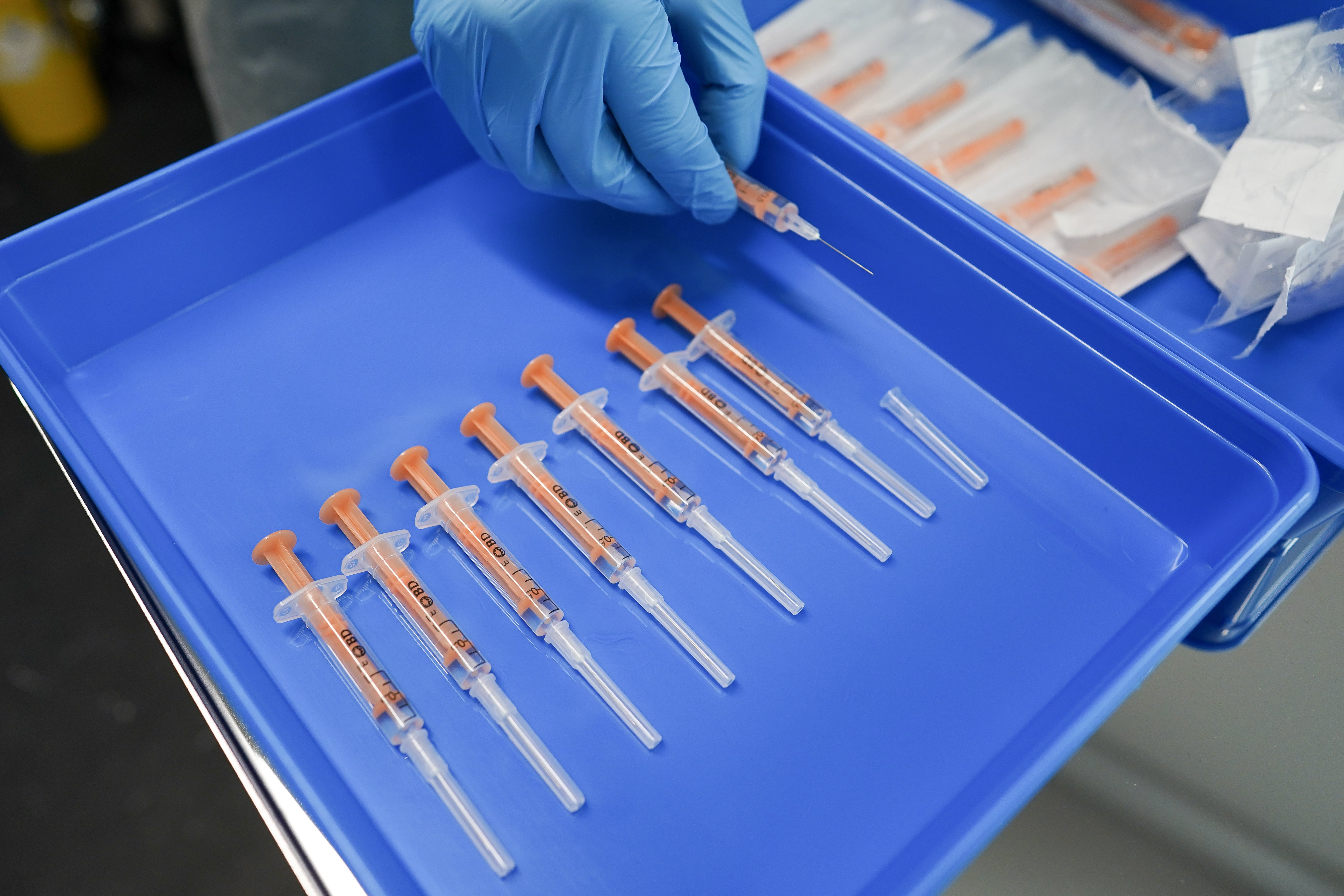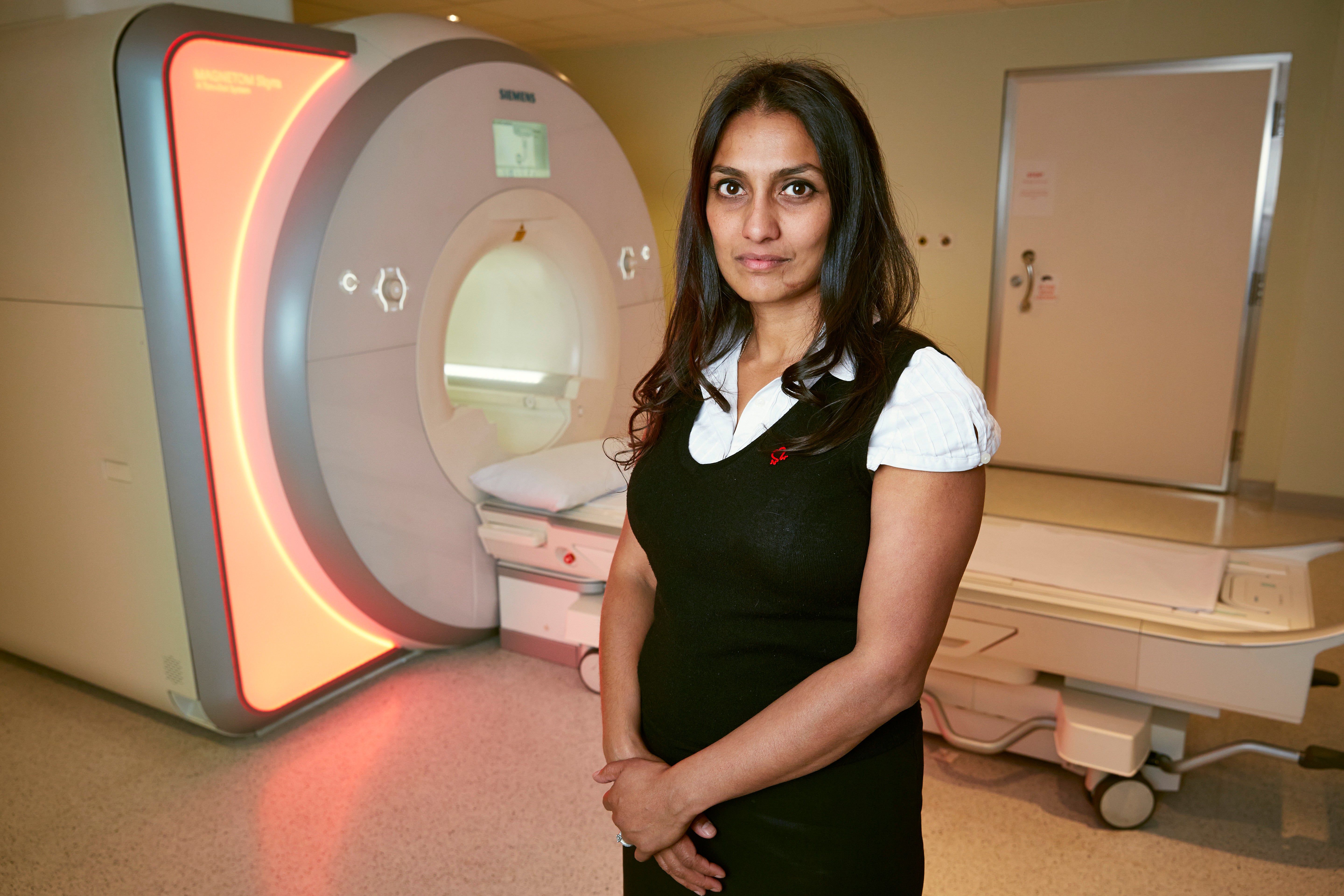
The UK has now vaccinated more than half the adult population thanks to the efforts of the NHS and GPs around the country, but it is crucial that everyone gets a vaccine when their time comes.
Research shows that both the Pfizer-BioNTech and Oxford-AstraZeneca vaccines are highly effective in reducing infections among people aged 70 years and over.
In the over 80s, data suggests that a single dose of either vaccine is more than 80 per cent effective at preventing hospitalisation, around three to four weeks after the jab, although two doses provides maximum protection.
The rollout of the vaccinations continues at pace with the aim to offer a vaccine to all over-50s by mid-April.
People will inevitably have questions about the vaccines so here we answer some of the most common queries relating to the jabs, their safety and why it is important that everyone takes the opportunity to be immunised when they are offered it.
How effective are the vaccines?
The most recent study on the effect of vaccines from Public Health England (PHE) showed vaccines provide a high level of protection, they reduce your risk of catching Covid, reduce the number of people getting serious Covid and needing hospital treatment and reduce the number of people who die from Covid.
Having your second dose is really important when the time comes. The first dose of the vaccine provides a high level of protection, but for that protection to last longer, everyone needs to get a second dose.
PHE data shows that both the Pfizer and Oxford-AstraZeneca vaccines are highly effective in reducing Covid infections among older people aged 70 years and over.
Since January, protection against symptomatic Covid, four weeks after the first dose, ranged between 57 per cent and 61 per cent for one dose of Pfizer, and between 60 per cent and 73 per cent for the Oxford-AstraZeneca vaccine.
In the over 80s, data suggest that a single dose of either vaccine is more than 80 per cent effective at preventing hospitalisation, around three to four weeks after the jab.
There is also evidence for the Pfizer vaccine, which suggests it leads to an 83 per cent reduction in deaths from Covid-19.

How does the vaccine work?
“The Pfizer vaccine uses a section of the virus’s genetic code that is referred to as mRNA,” Dr Raghib Ali, a senior clinical research associate at the University of Cambridge, explained. “The vaccine can’t give you Covid or change your DNA, but it tricks your body into producing a spike protein.
“The immune system will then produce antibodies and T-cells that will be activated if you come across the actual virus in future.
“So having the vaccine means your immune system is ready and produces a much stronger immune response if you become infected.
“The Oxford vaccine takes a virus that is a bit like the common cold virus, but is completely harmless in humans. Like the Pfizer vaccine, it cannot cause disease or Covid.
“It tricks the cells to produce the spike protein, and the mechanism is then the same as the Pfizer vaccine.”
I’ve had Covid, so have the antibodies. Why should I have the jab?
“It’s true that having had Covid gives you a degree of protection, but the protection you get from a vaccine is higher, particularly when you have had the second dose, and it will also give you much better protection against new variants,” Dr Ali said.
I am young and fit, so why do I need it? I wouldn’t be expected to have the flu jab, why is this any different?
“While it’s true that the vast majority of people that die from Covid have been over the age of 60, about half of the people in intensive care are aged less than 60,” Dr Ali said.
“As a hospital consultant, I’ve seen lots of patients in their 20s, 30s, 40s and 50s. This is not a disease that just affects older people.
“The second point is that young people are equally at risk of long Covid, which can leave you with symptoms for weeks or even months. One in five people still have symptoms after five weeks and one in 10 at 12 weeks.
“Some of these symptoms can be very debilitating, leaving you with, for example, extreme tiredness, headaches and breathlessness – which can stop you from working or even getting on with ordinary daily activities.
‘The third reason – which is particularly relevant for ethnic minorities and especially south-Asians – is to reduce the risk of passing the disease on to relatives who you live with.”

Are the vaccines effective against the new variants?
“Everything that we’ve seen so far says that they probably are, probably to differing extents,” said Dr Nikki Kanani, a London-based GP and medical director of primary care for NHS England and NHS Improvement.
“But what we know really clearly about the vaccines being used in other countries and through research is that it certainly does still protect you from hospitalisation and death, which is the really key thing.
“You might get a mild illness but you won’t end up being hospitalised and dying which is key. We also know that over time all viruses change, to the extent that we need new vaccines, just like we do every year for flu, so the scientists at the MHRA will be able to tweak the vaccines relatively quickly so that if we need regular vaccinations we will be able to do that too.”

Is the vaccine safe for those with long-term health conditions?
“For people with long-term health conditions, they’re often more at risk of getting Covid-19 or the long-term Covid,” explained Dr Farzana Hussain, a GP in east London.
“So it’s even more important that they protect themselves with the vaccine. It has been tested on a whole variety of participants, including those with various long-term health conditions. We don’t know of any health conditions that would be an exclusion that the vaccine wouldn’t be safe for.”
What are the side effects of the Covid-19 vaccine short-term?
“Like all medicines, vaccines can cause side effects. Most of these are mild and short-term, lasting no longer than a week, and not everyone gets them,” Dr Hussain said.
“Your arm may be a bit sore and there might be a bit of a fever. Personally, I got absolutely nothing after my vaccine; in fact I had more of a sore arm after my flu vaccine.”
Anna Ranyard-Corner, 51, who lives in Bromley and is a carer for her 17-year-old son recently received the vaccine. She said: “I felt a bit fluey afterwards, and had quite an unsettled evening, feeling achy and not really with it. I’d say I felt unwell for about 24 hours, but I was fine by the next evening.”
Is it potentially risky to have the vaccine if you have a pre-existing heart condition?
“No, It is safe for people with heart and circulatory conditions,” said Dr Sonya Babu-Narayan, associate medical director at the British Heart Foundation.
“Like any vaccine, it is only approved because it is considered safe for people with long term conditions, like cardiovascular conditions.”

Zena Forster, 65, who lives near Newcastle Upon Tyne and has a long term heart condition, added: “The British Heart Foundation address all those issues on their website with dedicated pages all about the vaccine.
“They also have a brilliant helpline with a qualified team of nurses to ask questions. If you are still in doubt please speak to your doctor about any specific issues relating to your own health.”
Is one vaccine better than another for people with certain heart conditions?
“We looked into that for the current vaccines approved in the UK,” explained Dr Babu-Narayan. “So far the Pfizer/BioNTech and Oxford/AstraZeneca vaccines are currently available, and in the future, Moderna will be available.
“They’ve all been shown to work well against preventing the disease from the virus, which is the most important thing.
“The effectiveness measured in the studies for each vaccine is done slightly differently, so it isn’t always easy or helpful to try to compare them side by side.
“Nevertheless, serious side effects are very rare in all of them. Whichever vaccine you have will work to greatly reduce your chance of being hospitalised or dying of coronavirus infection, and therefore it’s best to get your jab at the first opportunity that you’re invited.”
What about those taking heart medication?
“The current vaccines are safe for people taking heart medicines and there’s no reason we have to think any heart medication will interact with the vaccine itself,” said Dr Babu-Narayan.
“Some people who are on blood thinners because of their heart condition or related conditions may worry in general about having a vaccine. There’s nothing specific about the Covid-19 vaccine injection compared to any other vaccine.
“But it’s always useful to tell the person giving you your vaccine if you are on a blood thinner, in case it may take a bit longer for the bleeding to stop. You may also get a bigger bruise.
“Generally, people who are on blood thinners know that and may be experienced in that sort of thing.
“This vaccine is not different from any other injection or vaccine and all the healthcare bodies have said that you can still have your vaccine whilst you have your blood thinners. You should just carry on taking them in exactly the normal way, just like any other heart medicine that you’re on.”
Can people with different religions have the vaccine?
“People ask if the vaccine is compatible with their religion, and many religious leaders have said yes,” said Dr Babu-Narayan.
“The British Islamic Medical Association considers all types of the vaccine as recommended, as does the Muslim Council of Britain, the British Sikh community, the Church of England and the Catholic Church.
“There is also a letter from 80 Jewish doctors in the UK to confirm that the vaccines do not contain ingredients considered non-Kosher.”
Is it potentially risky to have the vaccine if I live with diabetes?
“The short answer is no,” said Dan Howarth, head of care at Diabetes UK.
“None of the studies on the vaccine have shown it has an adverse effect on people with diabetes and when you consider that people with diabetes have a high risk of severe complications if they get Covid-19, we as an organisation highly recommend everyone be vaccinated.”
Bookmark popover
Removed from bookmarks